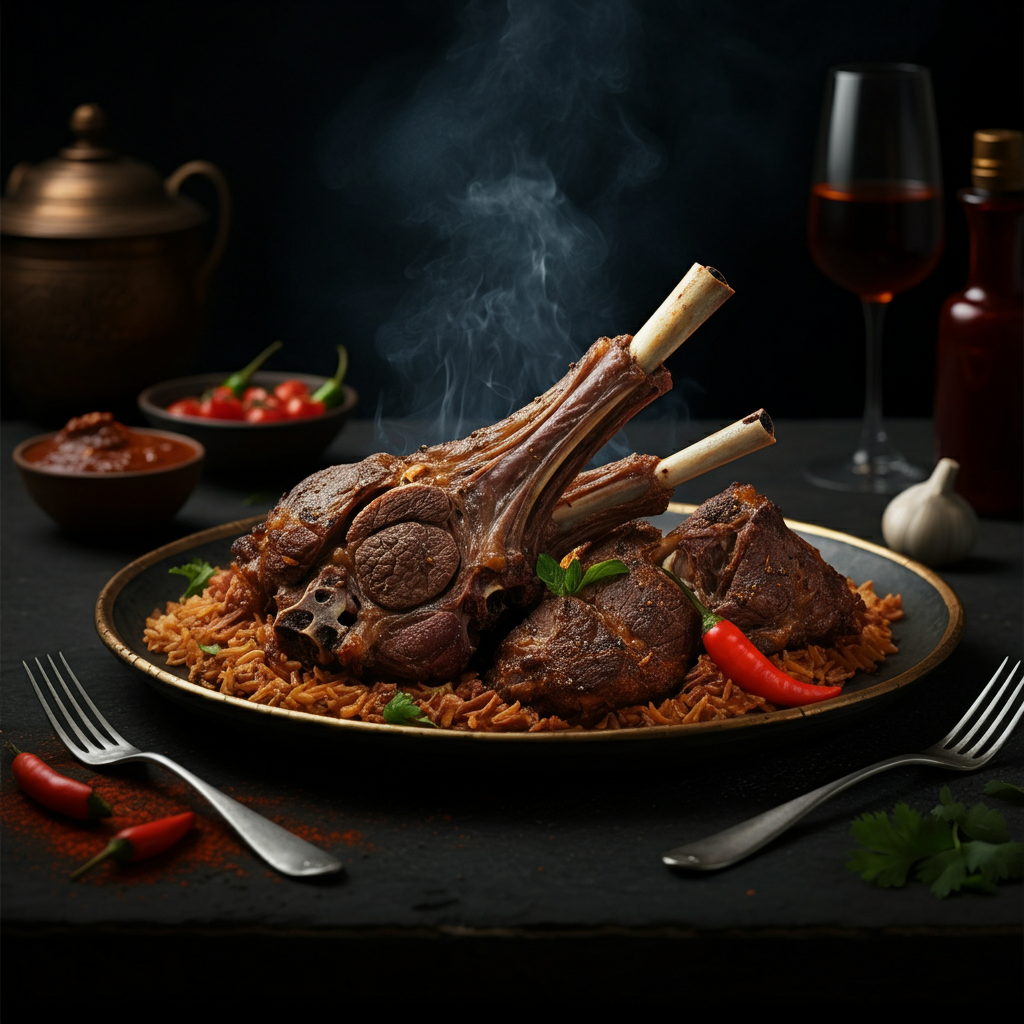Shuwa
Oman
(Note: this appears twice as it is a key dish. ) Slow-cooked meat (usually lamb or goat) traditionally cooked underground in a pit oven. A national favorite known for its tender meat and smoky flavor.

Origins and History
Shuwa, a culinary jewel of Omani cuisine, boasts a history as rich and layered as its flavour profile. Its origins are deeply rooted in Oman's Bedouin heritage, predating modern methods of cooking. The technique of underground cooking, known as "tanour," allowed for slow, even cooking in the desert's harsh environment. This ancient method, passed down through generations, ensured the tenderizing of tough cuts of meat, making the most of limited resources. The precise timeframe of Shuwa's emergence is uncertain, lost in the mists of time, but its enduring presence in Omani culture speaks volumes about its significance.
Cultural Significance
Shuwa holds a prominent place in Omani culture, transcending mere sustenance to become a symbol of tradition, hospitality, and communal celebration. It's not simply a dish; it's a cornerstone of social gatherings, especially during special occasions like weddings, religious festivals, and tribal gatherings. The preparation process itself is a communal affair, involving family and friends, creating lasting memories and strengthening social bonds. The sharing of Shuwa signifies generosity and strengthens community ties, underscoring its importance far beyond its delicious taste.
Traditional Preparation
The traditional preparation of Shuwa is a time-consuming yet revered process. Typically, lamb or goat is marinated for several hours, sometimes even days, in a blend of aromatic spices including turmeric, cumin, cardamom, and cloves. The meat is then carefully wrapped in palm leaves or banana leaves, further enhancing its flavour and moisture retention. The wrapped meat is then placed in a pit dug in the earth, heated with burning wood or charcoal. The pit is sealed with earth and left to slow-cook for an extended period, often a full day or more, resulting in succulent, incredibly tender meat with a distinct smoky flavour. The slow cooking allows the spices to permeate the meat fully, creating a complex and unforgettable taste.
Regional Variations
While the core concept of Shuwa remains consistent throughout Oman, subtle variations exist depending on the region and family traditions. The specific blend of spices used can vary, with some families favouring a particular spice profile over others. The type of wood used in the pit oven can also influence the smoky flavour, with different woods imparting unique nuances. Even the choice of meat can differ slightly, although lamb and goat remain the most popular choices. These regional adaptations contribute to the rich diversity of Shuwa, highlighting the culinary creativity and regional pride within Oman.
Modern Interpretations
While the traditional method of preparing Shuwa remains cherished, modern adaptations have emerged to cater to evolving lifestyles and preferences. While some maintain the traditional pit oven method, others have adapted the recipe for home ovens or slow cookers, retaining the essence of the dish while offering a more convenient cooking method. These adaptations allow a wider audience to experience the deliciousness of Shuwa without the logistical challenges of the traditional preparation. Experimentation with different marinades and spice blends also adds to the contemporary variations of this beloved dish.